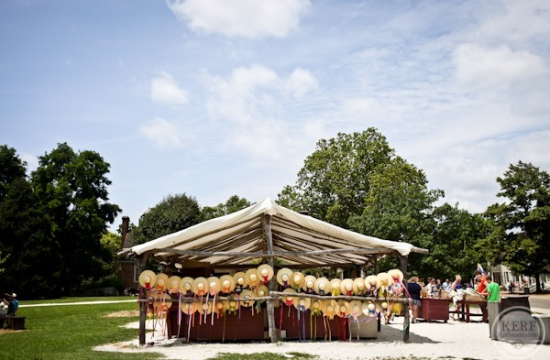Article by Dr Raghuram Y.S. MD (Ay) & Dr Manasa S, B.A.M.S
A quote from Vairagya Shatakam says ‘Kalaya Tasmai Namaha’ which means ‘Oh time, I bow with respect to you!’.
This statement says a lot about the ‘time factor’.
Everything happens in time. Time controls everything. There is a change happening in everything, everywhere, every moment and these changes and transformations are due to the effect of time factor. No one escapes the timeline of time. Our birth, life and death are also destined over a timeline, which is different for different people. We need to respect the time and be aware of it.
Some people say that time is an illusion and we are at different points on its line at different points of our life.
We are in an era wherein we talk about time-loop and time-travel.
Kala – A Dravya
Time is called Kala in Ayurveda. Kala is one among the nine dravyas – substances. So as per the rule of Dravya, Kala also has embedded in it the gunas – its own qualities (the most important one is ‘to change’) and karma – action or transformation (as happens with time), in an inseparable relationship. By mentioning it as Dravya, Ayurveda has given due importance to the ‘time factor’.
Kala, its importance in Ayurveda
Going deeper, Ayurveda has mentioned ‘kala’ in many contexts including the time taken for samprapti i.e. pathogenesis of disease to develop through a chain of events called shat kriya kala – six stages of formation of a disease, which on a positive note also means ‘six kalas or time periods’ wherein appropriate kriya – treatment can be done. Kala as in time required for growth and development, kala as in time required to treat a disease, kala as in time period for which the signs of proper oleation should be awaited for, kala as in time required for the enema medicine to return from the colon or kala as in the right time of the day to do certain activities and also to initiate the treatment process. Time is everything and everything should be done as per time.
‘Life is divided into three terms – that which was, which is, and which will be. Let us learn from the past to profit by the present, and from the present, to live better in the future’ – William Wordsworth
Kinds of Kala
Kala is of three kinds –
– Bhuta kala – past
– Vartamana kala – present and
– Bhavishya kala – future
So, which is important – past, present or future? Which one should we be more worried about?
We will discuss this with the help of a quote from Acharya Chanakya.
Past, Present, Future: What Acharya Chanakya Says?
गते शोको न कर्तव्यो भविष्यं नैव चिन्तयेत्।
वर्तमानेन कालेन वर्तयन्ति विचक्षणाः॥चाणक्य नीति १३.२।
Acharya Chanakya, talking about the past, present and future says – ‘One should never grieve or repent about the past and never worry about the future. A wise person is the one who has learnt to live in the present and will keep doing the same.’
This is the best quote on time factor, ever. This is the truth as well. This was applicable then, is applicable now and will be applicable even in future.
Forget the past
See, we cannot do much about the past. ‘Past is past and it has gone’. It will never come back nor can we go back in the timeline. So, the goods, bads and everything we have done in the past cannot be changed or erased. So, what is the meaning in living in the past, to keep thinking and worrying about what has happened in the past, feeling guilty, regretful or ashamed?
So, is it wise to forget the past and move ahead?
In a way yes, since we cannot do much about what has been done in the past. It gives us immense stress. This is the source of anxiety, worry, grief, depression and many mental disorders. This is because we are glued to our past and imprisoned in the jail of our past memories. We need to detach ourselves from the bonds of the past. Else we see no meaning in present or future. We have met the dead end and do not see or decline seeing the light at the end of the tunnel.
Get good things shipped from past to present, leave the bad things in the past and close the ‘past’ doors
But we can correct the same things in the present. We can correct ourselves and try not to make the same mistakes in the present. We can try to not put ourselves and others in the same zones of discomfort and pain once again. We can say ‘sorry’ and sort out things and relationships. The positive thing about all this is that we can take the lessons learnt from the past into the present. We can work on the goods and bad things we have encountered in the past, improvise and nurture the good things and avoid doing the bad and wrong things. This will make us better individuals and keep us healthy and happy and also respected in the society. Not living in the past is a remedy for our mental ailments and emotional turmoil.
To achieve this, one needs to live in the present.
Should we forget and erase the past?
Yes, if it was very traumatic and painful. If the past had sweet and good memories we can transport them into the present and also into the future and live with them.
Should we grieve or repent of the things which have happened in the past?
It depends. Example – we can occasionally grieve for our loved ones whom we have lost. They are part of our sweet memories and to grieve for them is a healthy tribute. We need to repent on the bad things that we have done in the past. Repentance is fine toning ourselves and by doing so; we have learnt to be honest with ourselves and to accept our mistakes. This will help us to make fewer mistakes in the present, avoid the same mistakes or improvise ourselves by avoiding those mistakes.
Many of us live in guilt. That is harmful for health. Guilt should mould us, not destroy us.
What will happen in the future?
Many of us live with this question. We will never find an answer for this. This is also an invited trouble which is the source for all kinds of worries and stress. Future is unpredictable and it is senseless to worry about it. By worrying about the future, we will forget to live happily in the present. We think we are earning and accumulating name, fame, people, wealth, everything for the future, which we are securing our future, but we do not realize that we might not be there to enjoy the fruits of what we have done. We leave back everything and that is reality. Past is a myth and the future is an illusion. Present is the reality.
In the same way, tomorrow will be the new present when we reach there, if we reach there!
So, is it wrong to think and plan for the future?
Certainly not, planning is always good and thinking about the future is also good. We should have goals to achieve and destinations to reach. Dreaming and planning about the future is a different thing, worrying and being stressed out so as to what our future beholds for us is different and this is wrong and unhealthy. It depletes us mentally, emotionally and sensually.
When we worry about our past, we are worrying about something which has gone and we cannot correct. When we worry about our future we are worrying about something which is yet to come, not in our hands, unpredictable and which we cannot shape it up as we want. We can just plan and hope that we will be able to execute them in future.
Live in the present!
This is what wise people do as per Acharya Chanakya. And all of us should make ourselves wiser to reasonably live in the present, enjoy the moments, lead life happily and spread happiness, love and affection to as many as possible. Our past should be a lesson for the present. Our present should create good blueprints for the future. Ultimately, be it past, present or future, it is the good deeds, thoughts and speech which make us good human beings. Living by the conduct of life is important. For this we should inculcate Achara Rasayana and Sadvrittas in our lives and pass on the batons of the same to our next generation.
In all the three time zones of Kala, our focus should be towards achieving dharma, artha, kama and ultimately moksha – the four goals of life, the purushartha chatushtayas. All our actions should be towards them and we should live in consciousness towards them, at all times. This would be the secret of happy and healthy living in all three time zones – past, present and future.














